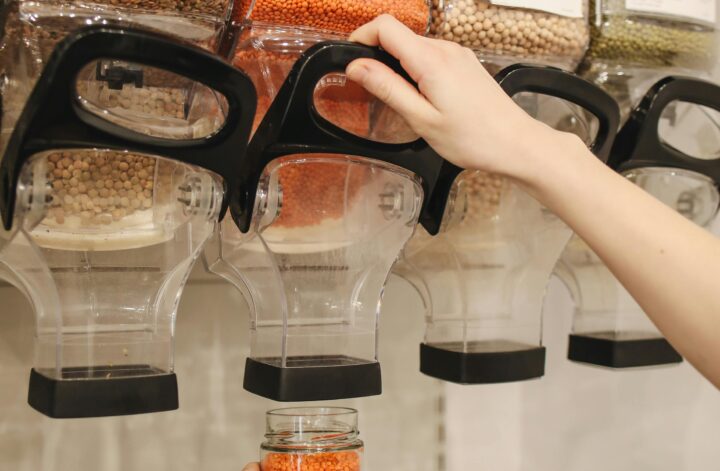In today’s world, plastic has become ubiquitous, from packaging to everyday items. However, its environmental impact is undeniable, with plastic waste polluting oceans, harming wildlife, and contributing to global pollution. Adopting a plastic-free lifestyle is a significant step towards reducing our ecological footprint and promoting sustainability. In this blog post, we’ll explore practical strategies and tips to help you minimize plastic waste and transition towards a more eco-friendly lifestyle.
Understanding the Impact of Plastic Waste
Plastic pollution poses a severe threat to the environment and human health. Single-use plastics, such as bags, bottles, and packaging, contribute significantly to landfill waste and marine debris. These plastics do not biodegrade but instead break down into microplastics, which can persist in the environment for hundreds of years, affecting ecosystems and wildlife.
Benefits of Reducing Plastic Waste
Environmental Conservation
Reducing plastic waste helps protect marine life, conserve natural habitats, and mitigate pollution in oceans, rivers, and terrestrial environments. By minimizing plastic consumption, we reduce our reliance on fossil fuels used in plastic production and promote resource conservation.
Health and Safety
Limiting exposure to harmful chemicals and toxins found in plastics can improve human health outcomes. By choosing plastic-free alternatives, we reduce potential risks associated with plastic contamination in food, water, and everyday products.
Sustainability and Resource Efficiency
Embracing a plastic-free lifestyle supports sustainable development goals by promoting circular economy principles and reducing the carbon footprint associated with plastic production, transportation, and disposal.
Practical Strategies for a Plastic-Free Lifestyle
1. Reduce Single-Use Plastics
Reusable Bags: Carry reusable shopping bags made from fabric, jute, or recycled materials for grocery shopping and errands.
Reusable Water Bottles: Use stainless steel, glass, or BPA-free plastic bottles instead of single-use plastic water bottles.
Bring Your Own Utensils: Carry reusable utensils, straws, and containers for meals on-the-go or dining out.
2. Opt for Plastic-Free Alternatives
Food Storage: Use glass jars, stainless steel containers, or silicone bags for storing food instead of plastic containers.
Personal Care: Choose shampoo bars, solid soaps, and bamboo toothbrushes packaged in recyclable or compostable materials.
Clothing and Textiles: Prefer natural fibers like cotton and linen over synthetic fabrics that shed microplastics.
3. Avoid Packaged Foods
Shop in Bulk: Purchase grains, nuts, and dry goods from bulk bins using reusable containers or bags.
Homemade Meals: Prepare meals at home using fresh ingredients to reduce reliance on packaged and processed foods.
4. Support Plastic-Free Brands and Products
Research and Choose Wisely: Look for brands committed to sustainable packaging practices, using recycled materials or biodegradable alternatives.
Eco-Friendly Cleaning Products: Opt for refillable or concentrated cleaning solutions in recyclable packaging.
5. Educate and Advocate
Raise Awareness: Share information about the environmental impact of plastic pollution with friends, family, and community members.
Support Policy Changes: Advocate for local and national policies that promote plastic reduction, recycling initiatives, and plastic bans in your area.
Embracing a Plastic-Free Mindset
1. Start Small, Go Gradual
Transitioning to a plastic-free lifestyle doesn’t happen overnight. Start by identifying easy-to-implement changes and gradually incorporate more sustainable practices into your daily routine.
2. Focus on Long-Term Sustainability
Embrace a mindset of sustainability by making conscious choices that prioritize environmental conservation and reduce waste generation. Celebrate progress and encourage others to join you in adopting plastic-free habits.
3. Seek Community Support
Connect with like-minded individuals and communities passionate about reducing plastic waste. Share tips, experiences, and resources to support each other’s journey towards a plastic-free lifestyle.
Conclusion
Reducing plastic waste is a collective effort that requires individual commitment and global action. By implementing simple strategies such as reducing single-use plastics, opting for plastic-free alternatives, and advocating for sustainable practices, we can contribute to a cleaner, healthier planet for future generations. Embrace the challenge of living plastic-free as an opportunity to foster positive change and inspire others to make environmentally conscious choices. Together, let’s take meaningful steps towards a more sustainable and plastic-free future.



